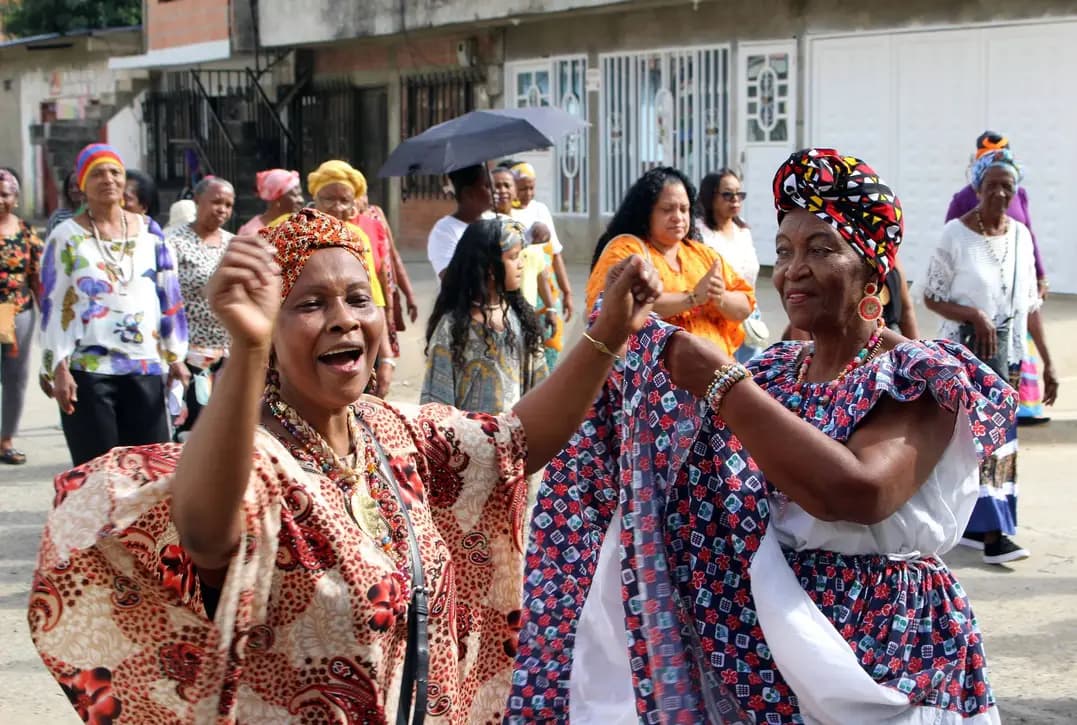SÃO PAULO, Brazil – A group of 170 Black Catholic women from different Latin American and Caribbean countries is having a virtual meeting this week with the goal of launching an unprecedented network in the region.
The movement, already named Catholic Afro Descendant Leaders of Latin America (also known by the Spanish acronym LACAM), will gather Black women who already have a position of leadership in their ecclesial communities or social movements. The network will be formed by religious women, lay ministers, and grassroots activists.
LACAM was conceived to work in close relationship with the Afro Pastoral Ministry of Latin America and the Caribbean. But the idea is to give a special place in the Church to one of the most marginalized social segments in the region.
According to an estimate of the United Nations, 134 million people identify as Black in Latin America and the Caribbean. The largest community is in Brazil, with more than 100 million people of African ancestry. In Haiti, more than 95 percent of the people are Black. Sizeable communities are also found in Colombia, Ecuador, Dominican Republic, Costa Rica, and Panama.
Black women in the region are among the social groups with less education and lower income. Such a marginalization, according to Mexican-born Sister Ruperta Palacios, who heads the Latin American and Caribbean Afro Pastoral Ministry, is also felt in the Church.
“Black women are generally seen as those who must work in the kitchen. Unfortunately, this also happens in the Church,” Palacios told Crux.
Maybe that’s why many of them have been leaving the Catholic Church. In countries like Brazil, where 31 percent of the population is Evangelical, Black women form the largest group among non-Catholic Christians.
At the same time, numerous Black women have been playing central roles in their ecclesial communities and movements over the past decades, Palacios said.
“It’s about time to recognize the work those women have been doing,” she said.
The organizers of the encounter, which began on Jul. 16, required that only leaders should attend it. Due to the disproportion in the size of the distinct Latin American communities, there has been a majority of Brazilian participants. But women from other 10 nations also have been taking part in the meeting.
“The network will be organized according to the structure of the Afro Pastoral Ministry, considering not only the number of people, but also their territories,” Panamanian-born lay Catholic Eunice Meneses, one of the promoters of the meeting, told Crux.
Palacios visited the Vatican in March and said that the Pope reaffirmed the idea that women should be protagonists in the Church, including Black women.
“He has been working for us. But for our particular churches, it seems to be very hard to put women in places of leadership in a pastoral ministry or any other instance. Especially Black women,” she said.
In her opinion, the “Latin American Church still hasn’t assumed with the necessary depth the commitment to Black women and other marginalized social segments when it comes to participation.”
“One thing is what we say, another thing is what we do. It will take years and years till women are really occupying decision-making positions,” Palacios added.
Meneses said the first time a group of Black Catholic women discussed the need to have a specific space for them in the Church was in 2003, during the ninth encounter of the Afro Pastoral Ministry.
“Since then, we talked about it in different meetings, like the one we had in Mexico [in 2020],” she said.
In order to officially create the network, the group decided to invite the Latin American and Caribbean Conference of Religious (known as CLAR), where there had been a Black group as well.
“Initially, we’ll focus on leadership training, something that we noticed that will be needed in our surveys. We have to increase the potential of our ancestral knowledge in order to strengthen our capabilities,” Meneses explained.
She said most of such women are “resilient and love other people even though they’re not part of their family, which are both characteristics that the Church needs.”
“We want to talk about a Catholic feminism influenced by our African cosmovision,” Meneses added.
LACAM will be launched at the end of the meeting, on Jul. 18, in the last year of the International Decade for People of African Descent, declared by the United Nations General Assembly in 2014 and “mostly ignored by the Church,” according to Palacios.
“Can you imagine if a Black woman is chosen to head a dicastery in Rome? It looks distant. There’s still too much prejudice,” Palacios said.











